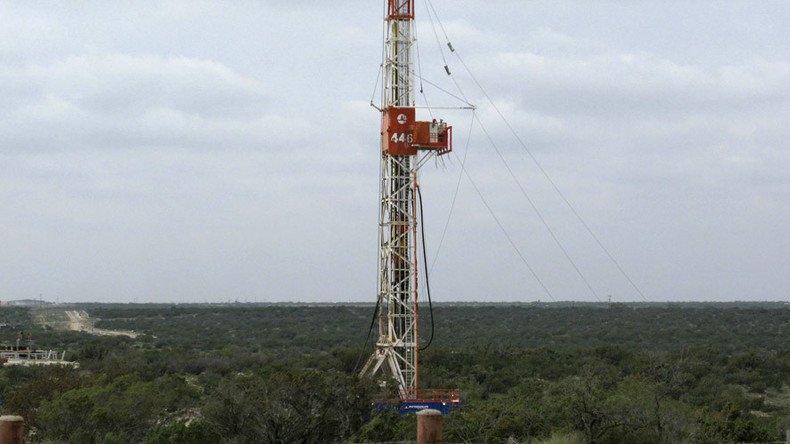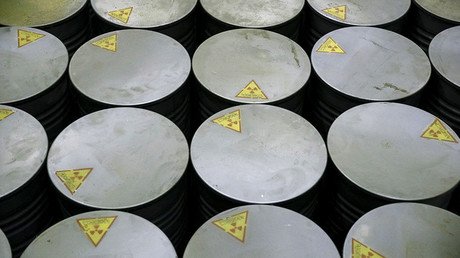Obama-appointed judge destroys chances of federal regulation on fracking

Imposing federal regulations on fracking – one of the Obama administration’s most ambitious targets – has been struck down by a judge because Congress won’t allow it. The rules would have gone a long way to reducing the harm associated with the practice.
Hydraulic fracturing as a way of extracting oil and gas has been proven to cause damage to both the environment and people’s health, and new studies keep coming in, linking fracking to the rising incidence of earthquakes. However, the practice has also been key to the United States’ recent oil and gas boom, so several states and powerful lobby groups have been doing everything they can to keep it going.
US President Barack Obama had made it his mission to open fracking up to greater scrutiny, including delegating authority to the Interior Department. But Judge Scott Skavdahl of the District Court of Wyoming on Tuesday ruled out this possibility.
The proposed new rules from the Bureau of Land Management sought, among other things, to compel petrol producers to disclose to federal regulators the ingredients in the chemicals they pump into the ground. Since the chemicals themselves had been the subject of much controversy, this is a big win for the US oil industry and a huge loss for environmental groups and anyone living within several miles of a fracking well.
Furthermore, the rules would ensure that fracking wells are properly constructed and store wastewater in a safe manner (that last part was also a huge bone of contention between the pro and anti-fracking sides).
The proposed rules would enable federal regulators to keep up with the incredibly fast pace of innovations in hydraulic fracturing.
Skavdahl, who shot down the measure, was actually appointed in 2011 by Obama as part of his fracking-regulation initiative. Last year, when the Interior Department tried to implement the new measures, Skavdahl blocked it as well, causing The department to appeal the injunction. However, Tuesday’s decision effectively ended that battle in favour of the oil companies and a few western states – Colorado, Utah, Wyoming and North Dakota – who filed briefs with the judge.
Skavdahl’s reasoning is that the BLM tried to impose the rules on its own without Congressional approval, which was denied back in 2005. “Congress has not delegated to the Department of Interior the authority to regulate hydraulic fracturing,” the Wyoming judge wrote. “The [Bureau of Land Management’s] effort to do so through the Fracking Rule is in excess of its statutory authority and contrary to law,” he added in a statement.
“Congress’ inability or unwillingness to pass a law desired by the executive branch does not default authority to the executive branch to act independently, regardless of whether hydraulic fracturing is good or bad for the environment or the citizens of the United States,” he continued.
The news was greeted with joy by the Independent Petroleum Association of America, as well as Wyoming Republican Cynthia Lummis, who, according to ABC, called Skavdahl’s ruling “a victory” on the grounds that Interior’s attempts to regulate fracking “undermined the careful and efficient regulation that states have put in place.” She mentioned her home state as a positive example of such regulation.
Association spokesman Neal Kirby said on Tuesday the "BLM did not have the authority to issue its rule in the first place," and therefore, "Today's decision demonstrates BLM's efforts are not needed and that states are — and have for over 60 years been — in the best position to safely regulate hydraulic fracturing."
This represents the latest setback for the Obama administration. Earlier this year, the Supreme Court blocked the Environmental Protection Agency from enforcing the president’s Clean Power Plan, aimed at reducing power-plant emissions by 2030.














